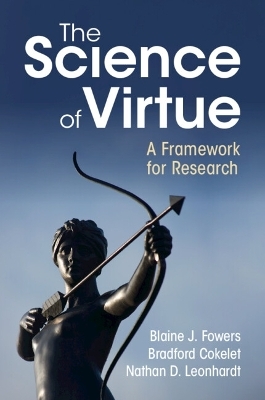
The Science of Virtue
Cambridge University Press (Verlag)
978-1-108-74798-1 (ISBN)
Integrating psychological and philosophical research on virtue and moral development, this book presents a real-world program for virtue science. Offering empirically testable hypotheses, the chapters deliver theoretical and methodological guidance that shows how existing research can become a cohesive and truly interdisciplinary science of virtue. The authors' unique 'STRIVE-4 Model' defines a unifying conceptual framework, making the book an indispensable resource for a new generation of scholars and students. This empirically tested model provides the much-needed foundation that can put to rest traditional worries about moral science. While mapping out the relevant areas of psychology and value-focused inquiry, the book lays out an interdisciplinary approach to many questions, including the problem of knowledge about character. Written for those researching virtue drawing on personality, developmental, moral, and positive psychology, as well as moral philosophy and character education, the book demonstrates the importance and applications of studying virtues empirically.
Blaine J. Fowers is Professor of Counseling Psychology at the University of Miami, USA. He conducts theoretical and empirical investigations of virtue, practical wisdom, and flourishing. He has published five books, and over 100 articles and book chapters. He is a fellow of the American Psychological Association and a recipient of the Joseph B. Gittler Award. Bradford Cokelet is Associate Professor of Philosophy at the University of Kansas, USA. He conducts cross-cultural philosophic research into different ideals of virtue and cross-disciplinary work on moral virtues, moral emotions, and how ethics classes can effectively promote ethical change. He has published widely, including a co-edited book The Moral Psychology of Guilt (2019). Nathan D. Leonhardt is Assistant Professor of Family Life at Brigham Young University, USA. He studies virtues and flourishing in close relationships. He has over fifty academic publications. He was a Vanier scholar at the University of Toronto, Canada, and a visiting scholar at the University of California, Berkeley, USA.
Introduction: why study moral virtue; Part I. Philosophical Resources and Prospects: 1. Virtue theory; 2. A philosophically informed virtue science; Part II. Psychological Resources and Prospects: 3. Toward reconciling the fragmentation of virtue science; 4. The psychology of moral development and virtue; 5. Personality and virtue; 6. The place of values in virtue science; Part III. Organizing Virtue Research with the STRIVE-4 Model: 7. Virtues as scalar traits; 8. The role sensitivity of virtues; 9. Virtue trait by situation interactions; 10. Values and eudaimonia as guideposts for virtues; 11. The four components of virtue; Part IV. The Science and Practice of Virtue: 12. Virtue science and moral philosophy; 13. Virtue science and psychology.
| Erscheinungsdatum | 23.01.2024 |
|---|---|
| Zusatzinfo | Worked examples or Exercises |
| Verlagsort | Cambridge |
| Sprache | englisch |
| Maße | 152 x 229 mm |
| Gewicht | 568 g |
| Themenwelt | Geisteswissenschaften ► Psychologie ► Psychoanalyse / Tiefenpsychologie |
| ISBN-10 | 1-108-74798-1 / 1108747981 |
| ISBN-13 | 978-1-108-74798-1 / 9781108747981 |
| Zustand | Neuware |
| Informationen gemäß Produktsicherheitsverordnung (GPSR) | |
| Haben Sie eine Frage zum Produkt? |
aus dem Bereich


